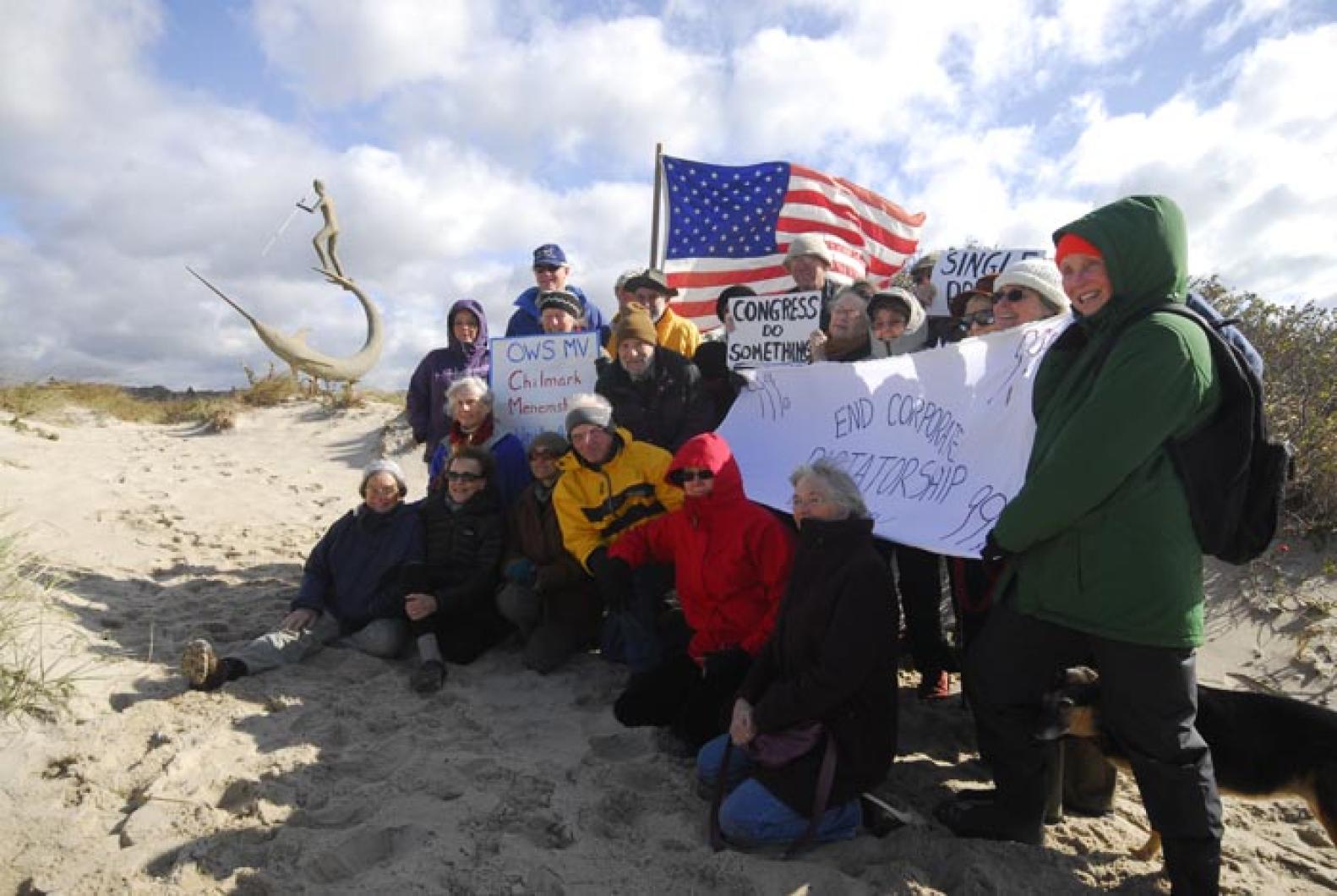Three weeks ago, my 16-year-old daughter asked me what the Occupy Wall Street protests taking place in Zuccotti Park and all over the country meant. To better answer her, I visited the park and spent time talking to many different protestors. There was a very inviting and spirited energy the night I visited. The group was frantically cleaning the park in hopes of not getting thrown out the next day. At one point I was even handed a mop to help.
What I found there was a chorus of many different voices with a common refrain. It was a song of anger, frustration and a fear that their future is slipping away, that America’s future is slipping away, or at least that it will look very different from the future today’s youth thought they’d have. I also heard a sense of purpose in being part of something bigger than oneself.
To be frank, I am surprised it took this long for us to have these European-style protests. We have one in seven Americans on food stamps, 21 per cent young male unemployment, and have seen the wealth gap rise dramatically over the past 25 years. There is a belief among many of the protestors that those who have benefitted financially during this time must have done something illegal, must have cheated, or at a minimum used their influence to stack the deck in their favor. They want justice. They also want and need jobs.
On a few occasions that night, I earnestly engaged in conversation, thinking my 20 years studying the macroeconomic trends and forces that have created many of our problems gave me a unique perspective I could share. But after awhile I realized it was just better to listen. Just like I was not going to convince a Tea Partier that it is essential that we raise tax revenue to close the budget gap, I was not going to win the day in Zuccotti Park with arguments of globalization, an entitlement bubble and a new reality. I also realized my urge to simplify things, even in as balanced a way as I could, wasn’t giving credit to the collective voice of these ever-growing protests.
The reactions of my colleagues on Wall Street to these protests can be just as telling as the protests themselves. One camp dismisses the protests as lazy lefties. They see the protestors as naïve and looking for handouts. And they often see their own success as purely a product of their hard work and acumen.
A far larger group, however, is taking notice of what is happening and realizing that there is something bigger going on than a few hippies camping in a park. These are hardworking, financially successful people who recognize they and their industry have benefitted immensely from the megatrend of globalization and are in a position to help. And they are willing to help but don’t like being told they “owe” anyone anything. The frustration most of these friends of mine have is that all the solutions proposed by the OWS movement, not to mention the Tea Party, and even the center, have polarized us even further. Almost to a man, most Wall Streeters would gladly pay an increased tax burden if there was a belief that the government would invest those taxes in its people, in infrastructure, and in our future. They also want the government to come clean to its citizens about the unmanageable and untenable burden future entitlements will place on this country and start renegotiating those promises now.
So the stalemate continues with the country waiting for leadership, from the political class and the business class. Leadership to explain to America how we got here. How globalization has radically changed the American landscape over the past 25 years. How our political leaders promised and spent more than we can afford. How with the exceptions of those engaged in fraud and corruption, it isn’t any one group’s fault that the wealth gap has risen so much. How we have a new reality that very well might need a new morality, a different model than the one we’ve been using. How we need to stop the politics of blame and move to the politics of compromise and action.
I hope I am not waiting for Godot.
Michael Novogratz is a principal partner at Fortress Investment Group. Prior to that he was a partner at Goldman, Sachs & Co. He is a frequent visitor to the Island.




Comments
Comment policy »